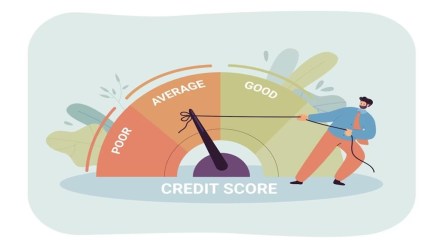If you recently downloaded your credit report and it showed a “hard inquiry”, it means that you must have applied for some type of credit (such as a credit card or loan) in the last two years. A hard inquiry can damage your credit score, and it may stay on your credit report longer than expected.
Let us understand what hard inquiry is and how it affects your credit report and credit score.
What is a hard inquiry?
When you apply for any type of loan or credit card, you allow the bank or financial institution to check your credit report. This is done to determine whether you are creditworthy or not, and it is called ‘hard inquiry’ or ‘hard pull’ or ‘hard credit check’.
Potential lenders look at your credit report to understand whether you will be able to repay the borrowed money on time. If you have a good credit history, banks or financial institutions are less likely to hesitate in giving you a new loan or credit card.
When a bank or financial institution pulls your credit report from the four major credit bureaus (Experian, Equifax, TransUnion CIBIL, or CRIF Highmark), it is called a hard inquiry.
Also read: CIBIL Score Vs Credit Score: There is a difference – Explained
Every time a hard inquiry appears on your credit report, your credit score may drop by a few points, regardless of whether your loan or credit card application is approved or not. On the other hand, if you check your credit report yourself or apply for pre-qualification for a credit card, it is considered a soft inquiry and does not affect your credit score.
When does a hard inquiry appear on your credit report?
If a hard inquiry is listed on your credit report, it could be that you:
-Applied for a new credit card in the last two years.
-Taken out a new personal loan, home loan, car loan, education loan, or mortgage loan.
-Applied for a balance transfer card or loan.
-Applied for a business credit card.
-Applied for an increase in the credit limit of your existing credit card.
How does a hard inquiry affect your credit score?
Although a hard inquiry remains on your credit report for two years, only the last 12 months of inquiries are considered in the credit score calculation.
If you already have a good credit history, a hard inquiry may have little or no impact on your score. But if you have a short credit history or don’t have many credit accounts, a hard inquiry can hurt your credit score more than a soft inquiry.
If you’re just starting to build your credit score, a hard inquiry can impact your score more. But that doesn’t mean you should avoid applying for credit.
It’s okay to apply for credit every once in a while because it shows you’re trying to build your credit history. Just make sure you don’t apply for credit too often in a short period.
Also read: What factors affect your credit score the most? Ways to improve it
How do lenders view hard inquiries?
Hard inquiries are considered less influential in calculating credit scores, but they play an important role in assessing your loan risk.
Lenders check your credit report to understand how creditworthy you are.
If you see too many hard inquiries on your report, it could indicate that you are under financial stress and may have difficulty repaying loans in the future.
However, lenders also take into account your income, payment history and other factors before granting a loan.
Ways to reduce hard inquiries
Hard inquiries are not always bad, but they can temporarily lower your credit score. So, it is better to follow these tips to reduce hard inquiries:
-Do not apply for multiple credit cards at once. Consider applying for just one new credit card every six months.
-Apply only for credit cards that suit your financial needs.
-Check your credit report and score before applying for new credit. This will let you know in advance whether you are eligible or not.
-Apply for pre-qualification so you can get an idea of whether you are likely to get credit without hurting your credit score.
Summing Up
A hard inquiry is not always a cause for concern. It can happen for a variety of reasons and is not necessarily bad. If your credit score drops temporarily, you can raise it back in a few months by improving your credit habits.
However, it is important not to apply for credit too often so as not to incur too many hard inquiries. Most importantly – pay your bills and loans on time so that your credit score stays strong.
